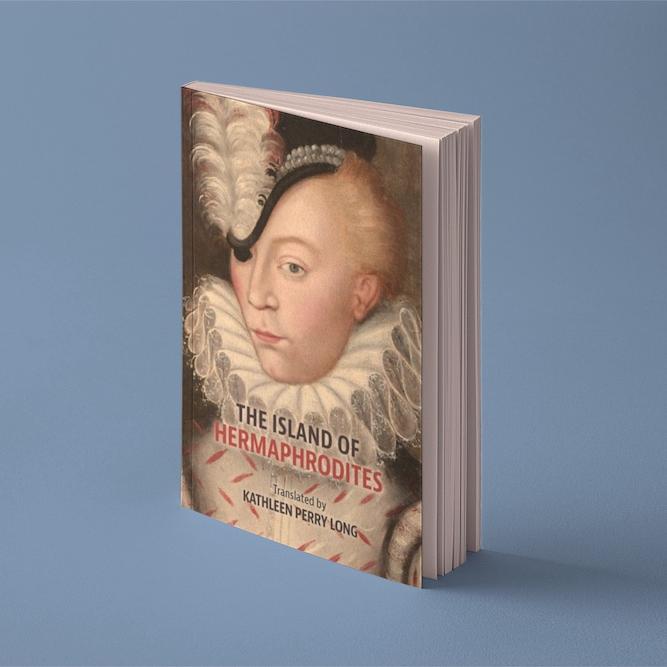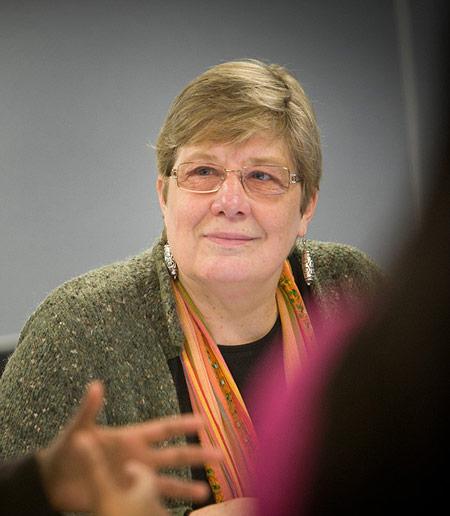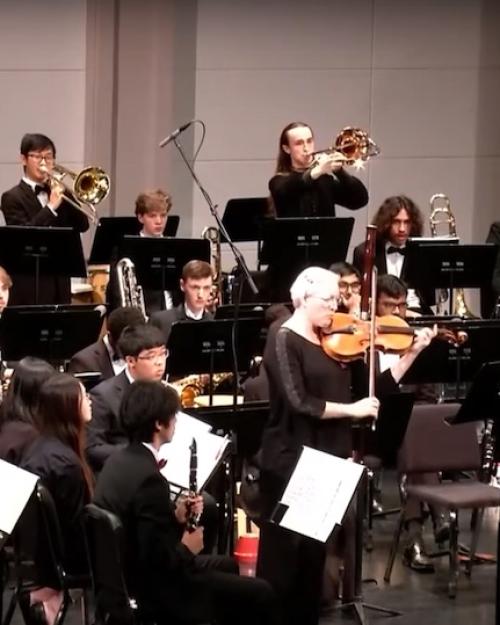On Nov. 13, 2022, Bailey Hall filled with the resonant debut of “A Place That Is Yours,” a piece of music written by Catherine Likhuta in memory of composer and professor Steven Stucky. Likhuta was able to rehearse beforehand with the student musicians in the Cornell Wind Ensemble and to speak to the audience during the concert thanks to Banding Together, a collaboration amongst central New York universities made possible by the Central New York Humanities Corridor.
The humanities corridor, a unique consortium of 11 universities and colleges endowed by the Andrew W. Mellon Foundation, is marking 15 years of supporting humanities research, educational initiatives and public engagement, such as this Cornell-led music project.
“Banding Together is a way for students to have meaningful interaction with a living composer,” said James Spinazzola, the Barbara and Richard T. Silver ’50, MD ’53 assistant professor and director of winds in the College of Arts and Sciences (A&S), who started the project in 2022 in collaboration with Syracuse University; the University of Rochester’s Eastman School of Music joined soon after. “We want to keep growing the project so we can expose student musicians and audiences to composers from a broad swath of the global musical community.”
The Central New York Humanities Corridor began in 2006 as a forward-thinking experiment in galvanizing collaborative research across universities, said Paul Fleming, the L. Sanford and Jo Mills Reis Professor of Humanities and director of Cornell’s Society for the Humanities (A&S), one of the corridor’s three principle investigators.
The core idea – to link humanities faculty and resources not just across departments but across campuses – has proven to be very successful, Fleming said.
“The beauty of the corridor is its flexibility,” Fleming said. “It can be anything imagined by the working group organizers – which includes not just faculty but also staff, librarians and archivists. The corridor provides a metaphorical and physical highway of connective possibilities across Central New York.”
The corridor is administered from the Syracuse University Humanities Center. Cornell is one of three funding centers, along with Syracuse and the University of Rochester. Additional consortium members are Colgate University, Hamilton College, Hobart and William Smith Colleges, Skidmore College, St. Lawrence University, Union College, Le Moyne College and the Rochester Institute of Technology.
About 180 working groups are currently active, organizing 100 events and meetings in 2023 so far, more than 50 of them public.
Cornell faculty are involved with an impressive slate of these interdisciplinary working groups, many of which were formed up to ten years ago and continue to collaborate today, Fleming said.
“The connective mechanism of the Corridor allows for shared access to unique resources and faculty expertise at each campus. For example, Cornell’s Prison Education Program and Rochester’s Education Justice Initiative inspired the working group ‘Incarceration and Decarceration,’ which has been active since 2013 and is comprised of faculty from anthropology, art, literature and philosophy,” Fleming said.
Collaborations with colleagues of similar interests in the region have benefitted Cornell faculty and have resulted in manuscript workshops, international conferences, intense writing retreats, musical collaborations and reading groups that invite authors for the discussion of their latest work.
Cornell faculty members say the connections forged by the humanities corridor have inspired new projects, multiplied research opportunities and built camaraderie.
Irina Troconis, assistant professor of Latin American Studies in the Department of Romance Studies (A&S), said she has benefited from the “deep, meaningful and extremely productive conversations” she’s had as part of a working group focused on exploring new Venezuelan cinema. Three scholars from three institutions (Cornell, Syracuse, and Union College) bring expertise in the fields of history, cultural studies, political science, anthropology, sociology, literary studies and performance studies to their discussions.
“Such a multi- and interdisciplinary lens is essential to understand the way Venezuelan film actively shapes and challenges the creation and grounding of certain national imaginaries and sociopolitical realities,” Troconis said. “I have learned the value of sharing ideas not when the article or chapter is already done, but in the early stages when everything looks messy.”
During its first year as a group, the working group invited film directors and producers Mariana Rondón and Marité Ugas to a Zoom conversation about their film “Pelo malo” (2013). Two graduate students also joined.
“It was a fantastic experience,” Troconis said. “Getting their perspective on our readings of the film, and learning from the questions everyone asked, definitely enriched and strengthened the arguments each of us were working on. It is something we look forward to repeating in the near future with other Venezuelan films and directors.”
Shirley Samuels, the Thomas and Dorothy Litwin Professor of American Studies and Picket Family Chair of Literatures in English (A&S) helped organize faculty, graduate students and librarians from four corridor institutions (plus three outside the consortium) into a working group focused on culture and democracy in 19th century New York.
“We started meeting in 2019 as a small group of faculty from Rochester, Syracuse and Cornell who all worked on race, culture, and politics in the 19th century United States,” Samuels said. “We welcomed the chance to share ideas and to invite our graduate students to each other's university libraries to share archives.”
The group’s fall 2023 meeting includes a public lecture by Dr. Britt Rusert, University of Massachusetts Amherst, on Sept. 29, with students and community members invited.
The Central New York Humanities Corridor is uniquely adapted to the region’s geography and scholarly synergies, said Saida Hodžić, associate professor of anthropology (A&S). Inspired by an informal conference hosted by Syracuse, she helped to form a corridor-supported group for scholars working on war ecologies – war’s ecological entanglements and reverberations in places including Rwanda, Bosnia and Kashmir.
“We realized that after the pandemic, what we all cherished wasn’t just intellectual exchange, although that was important, but in-person conviviality and the opportunity to get together with people we didn’t know otherwise,” said Hodžić.
“We are just dispersed enough in this region that it takes a commitment, an occasion, to come together.”





